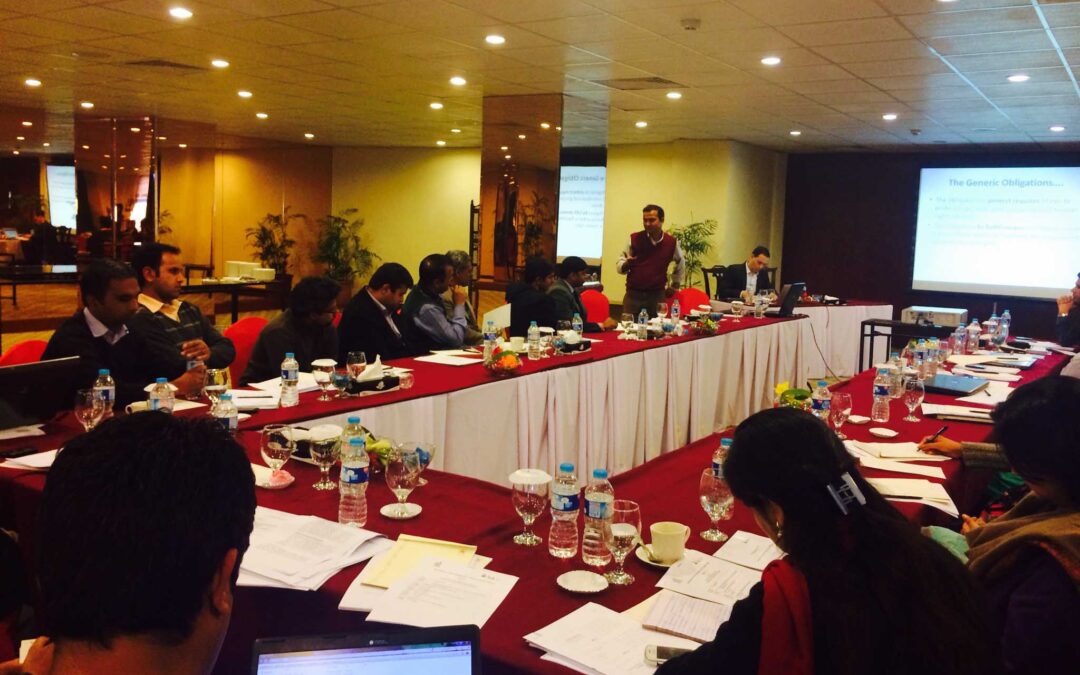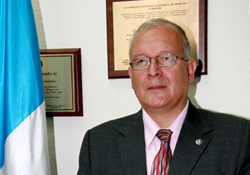
Feb 28, 2014 | News
A statement by Sultan Hassanal Bolkiah suggesting that critics of Brunei Darussalam’s new Penal Code may be criminally prosecuted for slander is clearly meant to curb freedom of expression and opinion in the country, the ICJ said.
The ICJ urged the Government of Brunei to ensure full respect for the right of freedom of opinion and expression.
In a speech marking Brunei’s 30th National Day on 23 February 2014, Sultan Hassanal Bolkiah said that social media had been used to express opposition to the implementation of the new Penal Code.
He said that those who use social media to express their opinions against the new Penal Code may be committing offences under the General Offences Chapter of the new law. He reportedly characterized some of this expression as amounting to slander, including of the King and of Ulamas, or Muslim scholars. The Sultan also warned that these critics “cannot continue to be allowed to inflict insults” and that they “can be brought to court.”
“Sultan Hassanal Bolkiah’s statement illustrates that human rights, particularly respect for freedom of opinion and expression, is widely disregarded by the authorities in Brunei,” said Sam Zarifi, ICJ’s Regional Director for Asia and the Pacific.
The ICJ has criticized the new Penal Code for being an affront to human rights and at odds with international standards.
The ICJ reiterates its concern that provisions in the new Penal Code are not in accord with the commitment made by Brunei Darussalam as a member of the Association of Southeast Asian Nations (ASEAN) to promote and protect human rights in the region.
“Free, unhindered debates on issues like the enactment or implementation of a law are important cornerstones of a democratic society,” said Zarifi.
Freedom of opinion and expression is a right that is affirmed in the Universal Declaration of Human Rights and guaranteed under the Convention on the Elimination of All Forms of Discrimination against Women (CEDAW) and the Convention on the Rights of the Child (CRC), to both of which Brunei Darussalam is a party. Under international law, any restrictions or limitations must be exceptional, in accordance with the principles of the proportionality and necessity.
The ICJ urged the Government of Brunei to allow free discussion, particular on matters of public importance such as State law and policies and to fully respect the right to freedom of opinion and expression.
Contact:
Emerlynne Gil, ICJ International Legal Adviser for Southeast Asia, t +66 2 619 8477; email: emerlynne.gil(a)icj.org
Craig Knowles, ICJ Media Consultant, t +66 81 9077653; email:craig.knowles(a)icj.org

Feb 27, 2014 | News
The ICJ is profoundly concerned at the recent enactment of legislation in Nigeria and Uganda that heralds further persecution based on sexual orientation and/or gender identity.
On 24 February 2014, Uganda’s President, Yoweri Museveni, gave his assent to the Anti-Homosexuality Bill recently adopted by the Uganda Parliament by signing it into law.
His Nigerian counterpart, President Goodluck Jonathan, had signed the Same Sex Marriage (Prohibition) Bill into law on 7 January this year.
In both countries pre-existing legislative provisions already criminalized consensual same-sex sexual activity in private in contravention of international human rights law and standards, including the Universal Declaration of Human Rights, the International Covenant on Civil and Political Rights and the International Covenant on Economic, Social and Cultural Rights.
These core global instruments each affirm the universal and inalienable rights to human dignity, equality and non-discrimination.
“Carnal knowledge…against the order of nature,” for example, was already a criminal offence in both Nigeria and Uganda, carrying, upon conviction, maximum sentences of 14 years’ imprisonment in the former and life imprisonment in the latter.
The new Nigerian legislation makes people of the same gender who contract a marriage or civil union liable upon conviction to 14 years’ imprisonment.
Further, it makes criminally responsible anyone who “administers, witnesses, abets or aids” a same-sex marriage or civil union ceremony, rendering those found guilty of the offence liable to 10 years’ imprisonment.
It also outlaws the registration, activities and funding of any “gay” organization, making them offences attracting 10 years’ imprisonment upon conviction.
In Uganda, the new law, among other things, explicitly criminalizes consensual same-sex conduct between women and makes it an offence for people to discuss and be open about their sexuality.
Further, it criminalizes “homosexuality”, “aggravated homosexuality” and same-sex marriages, all of which carry sentences of life imprisonment upon conviction.
Moreover, it makes it a criminal offence to make available information about sexual orientation, safe sex and gender identity. Renting premises to those who may “practice homosexuality” is also a crime.
The ICJ considers that laws or regulations that directly or indirectly criminalize consensual same-sex sexuality or conduct provide State actors with the means to perpetrate human rights violations, including through harassment, extortion and discriminatory “criminal” investigations, prosecutions, trials and imprisonment.
Equally, these laws enable non-State actors to persecute with impunity individuals based on their real or perceived sexual orientation and/or gender identity.
Indeed, laws that criminalize same-sex consensual sexual activity contribute to an atmosphere of State-supported homophobia and transphobia and serve as both the motivation and justification for harassment, extortion and physical abuse of people based on their real or attributed sexual orientation and/or gender identity by non-State actors.
In the circumstances, not only is cruel, inhuman or degrading treatment at the hands of non-State actors on the basis of real or perceived sexual orientation and/or gender identity not prevented, but such treatment and other human rights abuses are fostered when the authorities enact laws criminalizing consensual same-sex sexuality or conduct.
Overall, the existence of such laws works to deprive individuals who are, or are perceived to be, lesbian, gay, bisexual, transgender or intersex of adequate protection from violence and discrimination, including police protection and judicial redress.
This makes the provision of effective protection by State authorities extremely unlikely if not altogether impossible given that extending such protection would in turn be tantamount to aiding and abetting the perpetration of the very acts that such laws criminalize.
Putting the same point another way: protection is neither effective nor available when laws criminalizing consensual same-sex sexual relations or acts exist, because the individuals who need protection would effectively be outing themselves to the authorities should they decide to seek protection from them.
Accordingly, the existence of these laws entails a real risk of violations of the right to life, to liberty and security of the person, and to mental and physical integrity.
In light of the above, the ICJ considers that Uganda’s Anti-Homosexuality Act and Nigeria’s Same Sex Marriage (Prohibition) Act contravene each country’s respective Constitution and their international treaty and customary law obligations by which both countries are bound.
In particular, the Acts directly violate the right to dignity; equality, including equality before the law and equal protection of the law; non-discrimination; liberty and security of person; privacy; opinion and expression; association and peaceful assembly; and the right to access health services and care without discrimination.
Both pieces of legislation also undermine and criminalize the critical work of human rights defenders and civil society organizations that seek to combat discrimination and persecution based on sexual orientation and/or gender identity.
They also have very serious public health implications, including, for example, as a result of the fact that they hinder the prevention and treatment of HIV/AIDS.
The UN High Commissioner for Human Rights, Navi Pillay, has strongly denounced both pieces of legislation.
In relation to the Nigerian law, the High Commissioner said: “rarely have I seen a piece of legislation that in so few paragraphs directly violates so many basic, universal human rights”.
She further noted that the legislation “purports to ban same-sex marriage ceremonies but in reality does much more.
It turns anyone who takes part in, witnesses or helps organize a same sex marriage into a criminal. It punishes people for displaying any affection in public towards someone of the same sex.
And in banning gay organizations it puts at risk the vital work of human rights defenders who speak up for the rights of lesbian, gay, bisexual, transgender (LGBT) and intersex people”.
In his reaction to the enactment of the Nigerian legislation, the Executive Director of UNAIDS, Michel Sidibé, expressed concern that: “The provisions of the new law in Nigeria could lead to increased homophobia, discrimination, denial of HIV services and violence based on real or perceived sexual orientation and gender identity … It could also be used against organizations working to provide HIV prevention and treatment services to LGBT people.”
In relation to the Ugandan legislation, the High Commissioner said: “Disapproval of homosexuality by some can never justify violating the fundamental human rights of others” adding that the law “will institutionalise discrimination and is likely to encourage harassment and violence against individuals on the basis of their sexual orientation. It is formulated so broadly that it may lead to abuse of power and accusations against anyone, not just LGBT people.”
The ICJ urges the Nigerian and Ugandan authorities to urgently repeal the new legislation, as well as the pre-existing legislative provisions criminalizing consensual same-sex sexual activity in private.
Contact:
Livio Zilli, ICJ Senior Legal Adviser, Sexual Orientation and Gender Identity Programme, t +41 22 379 3823; email: livio.zilli(a)icj.org

Feb 24, 2014 | Events, Training modules
In partnership with the Human Rights Commission of Pakistan (HRCP), the ICJ conducted two-day workshops on NGO engagement with the United Nations, held in Pakistan on 18-19 and 21-22 February 2014.
The workshops, held in Lahore and Islamabad, focused on enhancing the meaningful participation of national NGOs with the UN human rights system. Participants included representatives from civil society working on a wide range of human rights issues, including enforced disappearances, education, violence against women and child rights.
Drawing from experiences of ICJ staff and participants, the workshops considered how international advocacy and engagement with the UN can benefit NGOs and addressed:
- The nature of international human rights law;
- State obligations under international human rights law;
- The UN human rights system;
- The Universal Periodic Review mechanism;
- The UN Special Procedures and the making of individual complaints to them;
- The UN Treaty Bodies, individual complaints and periodic reporting; and
- Documenting human rights violations.
Background materials on the Universal Periodic Review: (ENG) and (URDU)
Background materials on the UN Special Procedures: (ENG) and (URDU)
Background materials on the core functions of the UN Treaty Bodies: (ENG) and (URDU)
BAckground materials on periodic reporting to the UN Treaty Bodies: (ENG) and (URDU)

Feb 21, 2014 | News
The Kuala Lumpur High Court’s decision today to convict prominent Malaysian lawyer Karpal Singh on charges of sedition is inconsistent with international law and standards regarding free expression of opinion by lawyers, the ICJ said.
“This conviction sends a message that lawyers in Malaysia are not free to express their opinions about legal issues,” said Emerlynne Gil, ICJ’s International Legal Adviser on Southeast Asia.
Karpal Singh’s conviction was based on the fact that during a press conference held at his law firm in early 2009 he had spoken allegedly “seditious words” when questioned about whether Sultan Azlan Shah had the legal authority to remove the province’s Chief Minister, Datuk Seri Mohammad Nizar Jamaluddin, from office.
“This case is another sign of the lack of respect of the Malaysian government for the principle of free expression,” said Gil. “Karpal Singh was expressing an opinion in his capacity as a lawyer over a matter of law. He has every right to do that, as a lawyer, and of course as someone exercising his right to free expression of his views. He also has acted in fulfilment of a core function of the legal profession, which is to contribute to the public discourse on matters of law.”
The UN Basic Principles on the Role of Lawyers specifically provide that lawyers, like ordinary citizens, are entitled to freedom of opinion and expression. They have the right “to take part in public discussion of matters concerning the law, the administration of justice and the promotion and protection of human rights” without fear of suffering professional restrictions or repercussions due to their lawful action.
The High Court has fixed 7 March 2014 to hear Karpal’s mitigating circumstances, and for sentencing.
Under section 4(1) of the 1948 Sedition Act, Karpal Singh now faces a fine of up to RM 5,000 (approximately US$1,5010) and/or imprisonment of up to three years.
The conviction may force Karpal Singh to give up his seat as a member of the Malaysian parliament. Under the Federal Constitution, an elected representative is disqualified from office if fined more than RM 2,000 or jailed for a term exceeding one year.
Karpal Singh has provided legal defense in several high profile cases, including that of opposition leader Anwar Ibrahim, whose trial on charges of ‘sodomy’ has drawn heavy criticism in Malaysia and internationally.
Contact:
Emerlynne Gil, ICJ International Legal Adviser for Southeast Asia, t +66 2 619 8477; email: emerlynne.gil(a)icj.org
Craig Knowles, ICJ Media Consultant, t +66 81 9077653; email:craig.knowles(a)icj.org

Feb 21, 2014 | Advocacy, News, Non-legal submissions
The ICJ and other human rights organizations issued a public statement calling on Spanish lawmakers not to pass draft legislation that, if approved, would seriously limit Spanish courts’ ability to investigate and prosecute serious crimes under international law.
The draft legislation, tabled in Parliament by the Popular Party (PP), provides that, for cases involving allegations of genocide, crimes against humanity and war crimes not occurring on Spanish territory to be investigated and prosecuted in Spain, the suspect must either be a Spanish national or a foreigner habitually resident in Spain or a foreigner who is in Spain, whose extradition has been denied by Spanish authorities.
For case of torture and enforced disappearance, the proposed legislation requires that the suspect be a Spanish national or, alternatively, that the victim be a Spanish national at the time when the crime was committed and that the suspect be present in Spain when jurisdiction is assumed.
Where these conditions are not met, the proposal would allow Spanish courts to hear cases for those crimes for which prosecution is required by international treaties where the suspect is a foreigner on Spanish soil, so long as Spain has received and denied an extradition request.
The ICJ and other organizations stressed in their statement that if enacted, this legislation would close the doors of Spanish courts to certain victims of gross human rights violations who are unlikely otherwise to be able to obtain justice, particularly within their own jurisdictions.
Spain-Universaljurisdiction-NGOsJointStatement-2014-eng (download the joint statement in English)
Spain-Universaljurisdiction-NGOsJointStatement-2014-SPA (download the joint statement in Spanish)










